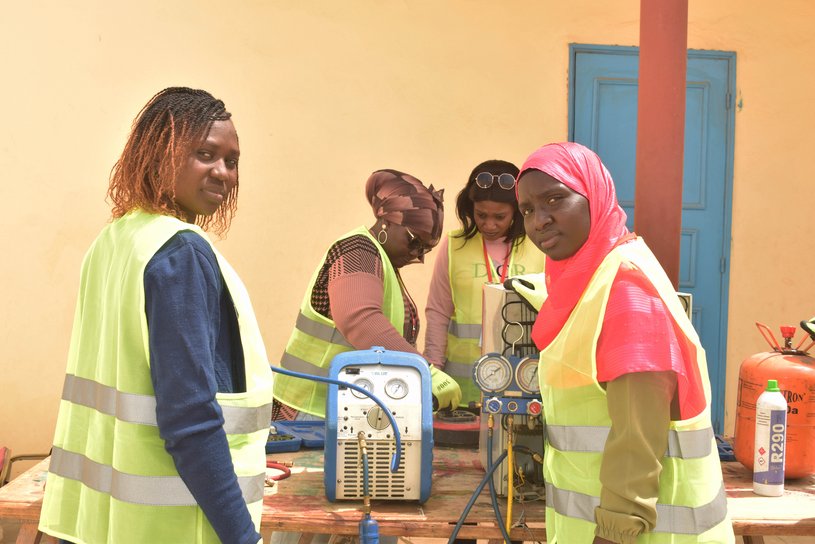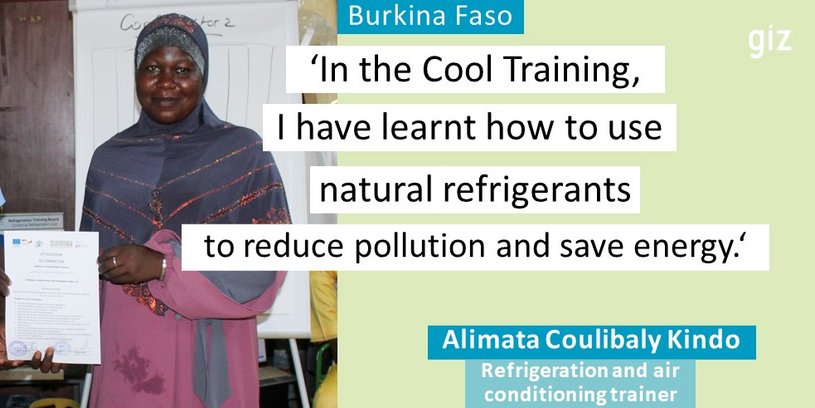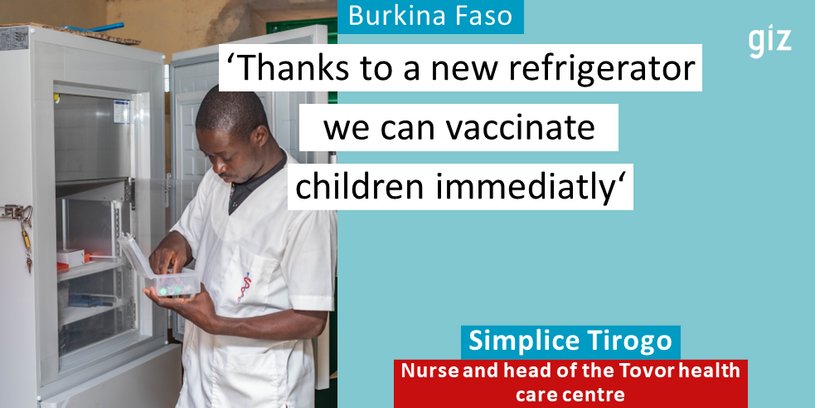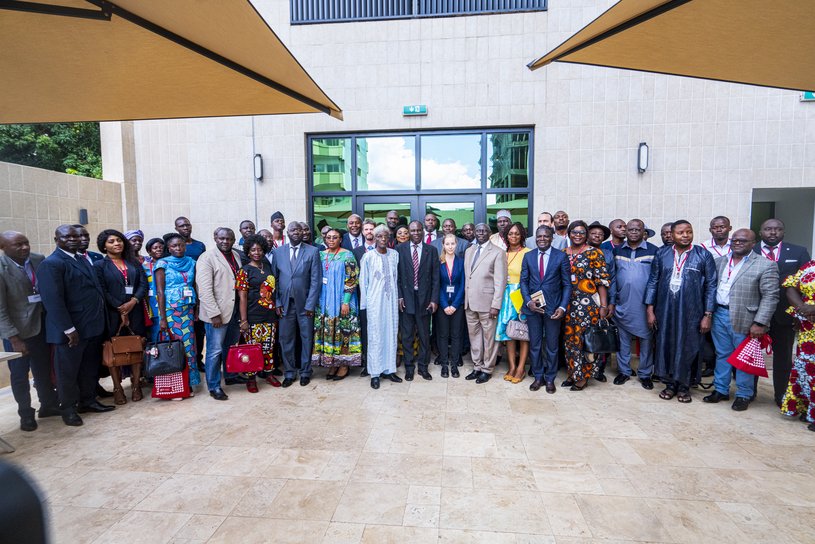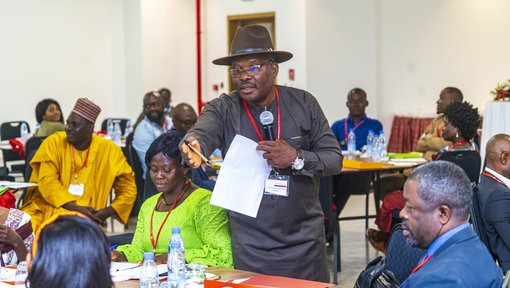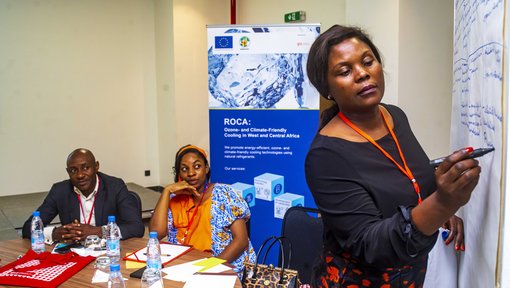ROCA promotes Green Cooling in Cameroon, Burkina Faso, Mali in Senegal. It's official launch in Cameroon took place in September, with a speech by the Minister for the Environment and a workshop with relevant stakeholders.
On Friday 30 September 2022, the Cameroonian Minister of the Environment, Nature Conservation and Sustainable Development officially launched the project "Refroidissement respectueux de l'Ozone et du Climat en Afrique de l'Ouest et Centrale" (climate and ozone friendly cooling in West and Central Africa) (ROCA). The main objective of the project is to reduce the climatic impact of the use of cooling appliances (air conditioners and refrigerators).
The project is built around 4 main axes
- analysis of current and future cooling demand and alternatives on the market
- Policy advice to adapt policy instruments for the market adoption of natural refrigerants;
- training of trainers to build a pool of technicians capable of using natural refrigerants;
- and pilot projects to facilitate the acquisition of the technology and raise awareness of its economic issues and technical viability.
This project, co-financed by the European Union for a total cost of 6.36 million euros, covers four countries: Cameroon, Senegal, Mali and Burkina Faso.
Ministerial Speech
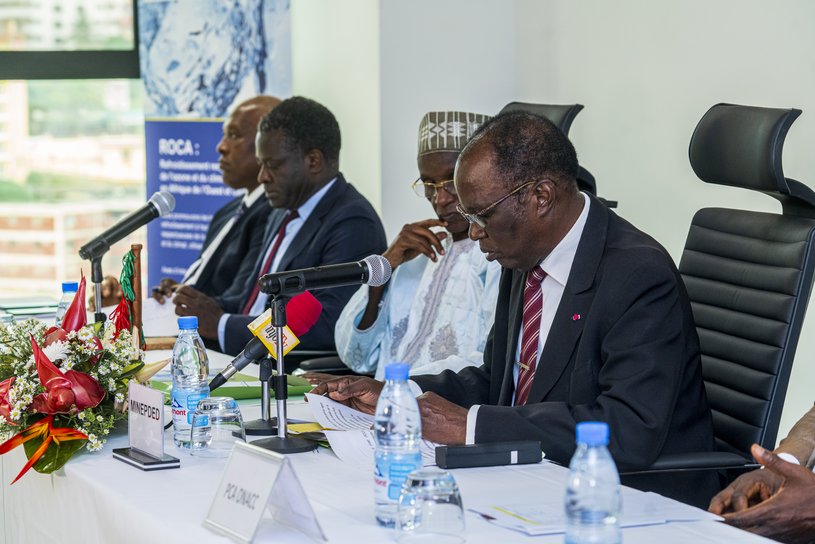 Image: GIZ / Hervé Lemoine
Image: GIZ / Hervé LemoineIn his speech, the Minister of Environment, Nature Protection and Sustainable Development underlined the importance of the topic for Cameroon which has made commitments at the national, sub-regional and international levels in terms of environmental protection, especially the fight against greenhouse gas emissions and the proliferation of ozone-depleting substances.
He recalled the vital role that the ozone layer plays in protecting life on earth and stabilising the climate. The project's response in Cameroon is the promotion and use of Green Cooling technologies. It is therefore a project that provides sustainable employment opportunities through the training of technicians that will be organised. But it is also a good opportunity to promote economic sustainability as purchase prices could decrease during the implementation phase of the project, thus promoting net savings over the life of the appliances. ROCA is an additional platform for Cameroon to meet its commitments under the Montreal Protocol and the Kigali amendment.
Quote of the Minister
"I congratulate the European Union and the German Technical Cooperation (GIZ) for such initiatives and hope that all stakeholders involved in this project will fully participate by making constructive and meaningful contributions throughout its implementation."
Stakeholder Workshop
This launching phase was preceded the day before by group work sessions, where various participants (DG Customs, MINESEC, Carrefour Supermarket, Order of Architects, etc.) were able to draw up action sheets for the proper implementation of ROCA project activities.
At the end of this official project launch, the ROCA project implementation contract was signed between Cameroon and the Federal Republic of Germany, represented respectively by MINEPDED and GIZ.

